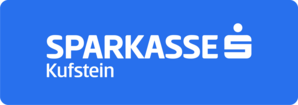
Apply
now
now
Competence & Talent Management /
level of course unit
BachelorLearning outcomes of course unit
The students
• can develop and set up a research design adapted to a problem.
• are able to present the state-of-the-art in a research field with reference to relevant journals (literature review).
• are able to recognize pitfalls of scientific work, to reflect critically on results and to discuss limitations of statements.
• are able to work on a scientific paper of medium complexity and manageable size and to write it down.
• can use artificial intelligence as an auxiliary tool conscientiously and reflectively in the context of scientific work.
• can develop and set up a research design adapted to a problem.
• are able to present the state-of-the-art in a research field with reference to relevant journals (literature review).
• are able to recognize pitfalls of scientific work, to reflect critically on results and to discuss limitations of statements.
• are able to work on a scientific paper of medium complexity and manageable size and to write it down.
• can use artificial intelligence as an auxiliary tool conscientiously and reflectively in the context of scientific work.
prerequisites and co-requisites
None
course contents
Part A: Research techniques for writing a literature review:
• Determining key words and researching appropriate journal articles.
• Techniques for screening scholarly articles and elaborating on key findings
• Developing a literature review matrix to systematically record researched journal articles
• Excursus I: Proper citation of journal articles and inclusion in the bibliography (APA style, Harvard style, etc.)
• Excursus II: Use of artificial intelligence for linguistic optimization, summarization of texts, presentation of data, etc.
Part B: Limitations and approaches for further research
• Recognition of possible limitations of a scientific paper (sample size, structure of interviewees, proof of expert status, implementation of pre-test incl. pre-test sheet and confirmations etc.)
• Identifying approaches for further research (reason and purpose of approaches for further research, recognition of possible approaches, formulation of approaches)
Part C: Discussion of selected best and worst practice cases:
• Preparation of a scientifically oriented handout
• Preparation of a scientifically oriented presentation
• Preparation of a scientifically oriented literature review
• Determining key words and researching appropriate journal articles.
• Techniques for screening scholarly articles and elaborating on key findings
• Developing a literature review matrix to systematically record researched journal articles
• Excursus I: Proper citation of journal articles and inclusion in the bibliography (APA style, Harvard style, etc.)
• Excursus II: Use of artificial intelligence for linguistic optimization, summarization of texts, presentation of data, etc.
Part B: Limitations and approaches for further research
• Recognition of possible limitations of a scientific paper (sample size, structure of interviewees, proof of expert status, implementation of pre-test incl. pre-test sheet and confirmations etc.)
• Identifying approaches for further research (reason and purpose of approaches for further research, recognition of possible approaches, formulation of approaches)
Part C: Discussion of selected best and worst practice cases:
• Preparation of a scientifically oriented handout
• Preparation of a scientifically oriented presentation
• Preparation of a scientifically oriented literature review
recommended or required reading
• Bänsch, A., & Alewell, D. (2020). Wissenschaftliches Arbeiten. Berlin/Boston: Walter De Gruyter GmbH.
• Oehlrich, M. (2022). Wissenschaftliches Arbeiten und Schreiben: Schritt für Schritt zur Bachelor- und Master-Thesis in den Wirtschaftswissenschaften. Wiesbaden: Springer Verlag.
• Theisen, M. R., & Theisen, M. (2021). Wissenschaftliches Arbeiten: Erfolgreich bei Bachelor- und Masterarbeit. München: Verlag Franz Vahlen.
• Oehlrich, M. (2022). Wissenschaftliches Arbeiten und Schreiben: Schritt für Schritt zur Bachelor- und Master-Thesis in den Wirtschaftswissenschaften. Wiesbaden: Springer Verlag.
• Theisen, M. R., & Theisen, M. (2021). Wissenschaftliches Arbeiten: Erfolgreich bei Bachelor- und Masterarbeit. München: Verlag Franz Vahlen.
assessment methods and criteria
• Homework and
• Quiz
• Quiz
language of instruction
Germannumber of ECTS credits allocated
2eLearning quota in percent
0course-hours-per-week (chw)
1.5planned learning activities and teaching methods
• 25% of the course is covered by eLearning. A combination of online phases (inductive method for the independent acquisition of knowledge and for the practice of tasks) and presence phases (deductive method, in which assistance is given in the learning process and knowledge is conveyed via frontal lectures) is used.
• Solution of case studies in the context of group work
• Solution of case studies in the context of group work








